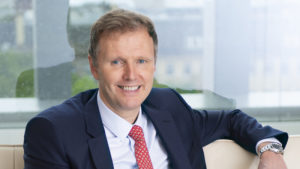According to the Office for National Statistics (ONS), GDP was estimated to have increased by 1.8% between 2016 and 2017, below the 1.9% growth seen between 2015 and 2016.
Growth was boosted by the services sector which increased 0.6%, compared to the 0.4% rise in the third quarter. Production and manufacturing also grew by 0.6%.
Ian Kernohan, economist at Royal London Asset Management, said: “While annual growth is still somewhat below the long term average for the UK, it is notably stronger than predictions made in the immediate aftermath of the Brexit referendum.
“Manufacturing output has shown a strong recovery, however it is the dominant services sector which remains the main driver of growth in the UK economy.”
Meanwhile, the construction industry took a hit for the third quarter in a row, although annual growth between 2016 and 2017 was at 5.1% due to a strong start to 2017.
Wouter Sturkenboom, senior investment strategist at Russell Investments, said that although the UK economy grew, “the trend in growth continues to point down”.
“We don’t yet have a full breakdown of the growth drivers in the last quarter but the available high frequency data indicates that the manufacturing and exporting sectors have been doing well while the consumer and housing sectors are struggling.
“These trends, driven by political uncertainty, negative real wage growth and a faltering housing market are expected to continue and keep our growth expectation slightly below consensus at 0.9-1.5%.”
Lucy O’Carroll, chief economist at Aberdeen Standard Investments, agreed with Sturkenboom and said that although the number is better than expected, it “doesn’t change the overall growth story”.
Describing 2017 as a disappointing year and delivering the UK’s weakest growth performance in five years, she said: “This is not impressive for a small, open economy that would normally expect to be benefiting from 2017’s healthy global pick-up.
“We’ll have to wait to see whether the numbers are revised, as they often are, but it does underline the IMF’s stark message earlier this week: the world economy is doing very nicely, the UK economy less so.
“But if UK businesses get the clarity that they need from the Brexit negotiations, stronger investment spending could follow. The UK might then benefit from the global pick-up – as a small, open economy normally would.”
Rising rates
Ben Brettell, senior economist at Hargreaves Lansdown said that despite the UK GDP growth, “the overall picture is one of muddling through”.
“Growth still looks lacklustre – and somewhat unevenly distributed – with the year-on-year figure of 1.5% the weakest since the first quarter of 2013,” he said. “But it’s certainly fair to say the economy has performed much better than many feared in the aftermath of the Brexit vote, boosted by the rising tide of a global recovery which has lifted all boats.
“Bank of England governor Mark Carney said in Davos recently that he expects the UK economy to ‘recouple’ with the global economy this year as Brexit negotiations provide greater clarity over our future trading relationship with Europe.
“With growth anaemic, I can’t see any rush to raise rates. Last year’s quarter point move seems like a tacit admission that the cut to 0.25% was unnecessary in the first place, rather than the start of a sustained upwards trend.
“I’d be somewhat surprised if we saw more than one rate rise this year, probably in the autumn.”







